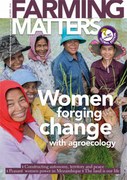AUTHOR
Month: December 2015
Articles
 Editorial: Women showing the way with agroecology
December 22nd, 2015
Editorial: Women showing the way with agroecology
December 22nd, 2015
Around the world, women forge change in their communities using agroecological approaches. Yet, surprisingly little has been written about this subject. This issue of Farming Matters shows how women can transform a situation of exclusion, crisis and social vulnerability, into a positive spiral of innovation, solidarity, and personal growth. Many innovations led by women are … Read more
 The faces at the frontline
December 22nd, 2015
The faces at the frontline
December 22nd, 2015
Working with principles of agroecology, women around the world are pioneering new practices in food and farming. Farming Matters proudly presents Esther, Ann, Allu, Lilian, Elizabeth, Mariama and Esther. “Agroecology is a way to produce food that is culturally acceptable” Esther Malya, farmer and livestock keeper in Tanzania “I am a farmer, a leader, a … Read more
Opinion: Safeguarding diversity in home gardens
December 22nd, 2015
In most cultures, the home gardens are women’s territory. Pablo Tittonell describes how female farmers safeguard the most important inheritance we may receive, one that is essential for agroecology, for future food and for nutritional security: cultural and biological diversity. I always have to think about the etymology of the terms ‘economy’ and ‘ecology’ when … Read more
 Building autonomy with agroecology
December 22nd, 2015
Building autonomy with agroecology
December 22nd, 2015
A strong network of female farmer-innovators in Paraíba, Brazil has been driving fundamental change in the lives of hundreds of women. Collective learning among farmers has brought rural women out of their isolation and into positions of leadership. The success of the women’s movement lies in its link between experimentation with agroecology and reflection on … Read more
 Opinion: Women farmers in Europe
December 22nd, 2015
Opinion: Women farmers in Europe
December 22nd, 2015
All over the world women play a unique and vital role in fixing our broken food system. There is a strong need in Europe to strengthen women farmers in their work, through education and training, argues Hanny van Geel. All over the world women play a unique and vital role in fixing our broken food … Read more
 Locally rooted: Ideas and initiatives from the field
December 22nd, 2015
Locally rooted: Ideas and initiatives from the field
December 22nd, 2015
Faced with many challenges, women find creative find solutions to improve their lives through agroecology. The experiences here highlight initiatives in which women have successfully organised themselves to strengthen their food systems, their livelihoods and their autonomy. Increasing food sovereignty and farmers’ income Women from Suklagandaki municipality in Tanahun, Nepal, used to buy vegetables from … Read more
 Constructing autonomy, territory and peace
December 22nd, 2015
Constructing autonomy, territory and peace
December 22nd, 2015
In the decades-long conflict in Colombia, agroecology has emerged as a strategy that helps women to cope with the war and to feed their families. AMOY, a women farmers organisation, not only promotes agroecological activities, but also supports women to counteract the cruelty of war by providing a space to express fear and sadness, to … Read more
 Peasant women power in Mozambique
December 22nd, 2015
Peasant women power in Mozambique
December 22nd, 2015
Women peasants in Mozambique are rescuing an agroecological model that goes against industrial, largescale food production. They are also rising up in protest against land grabbing, a trend that threatens to displace local farmers. In doing this, these women set Mozambique on a path toward sustainable development, while strengthening their positions, defending native seeds and … Read more
 Women drive alternative economies in the Himalayas
December 22nd, 2015
Women drive alternative economies in the Himalayas
December 22nd, 2015
In the Himalayas, male outmigration and the effects of climate change create challenges for rural women. Many of them develop innovative farming practices based on agroecology, push alternative economies and create niche markets. Women in India, Nepal and China show how agroecology can be a strategy to adapt to changing circumstances, and to drive positive … Read more
Mind! New books on women and agroecology
December 22nd, 2015
Living on the edge: women, agrobiodiveristy, and livelihoods V. Ramprasad, 2015. Green Foundation and Third World Network, India, 109 pages. The predominance of commercially-marketed crop varieties and associated, enabling policies are displacing indigenous varieties cultivated over many generations. This loss of agricultural biodiversity puts both food security and the livelihoods of farmers at risk. These … Read more
Month: December 2015
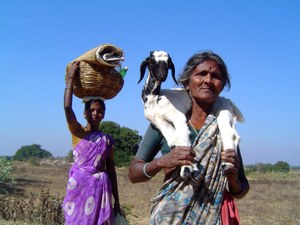 Editorial: Women showing the way with agroecology
Editorial: Women showing the way with agroecology
Around the world, women forge change in their communities using agroecological approaches. Yet, surprisingly little has been written about this subject. This issue of Farming Matters shows how women can transform a situation of exclusion, crisis and social vulnerability, into a positive spiral of innovation, solidarity, and personal growth. Many innovations led by women are … Read more
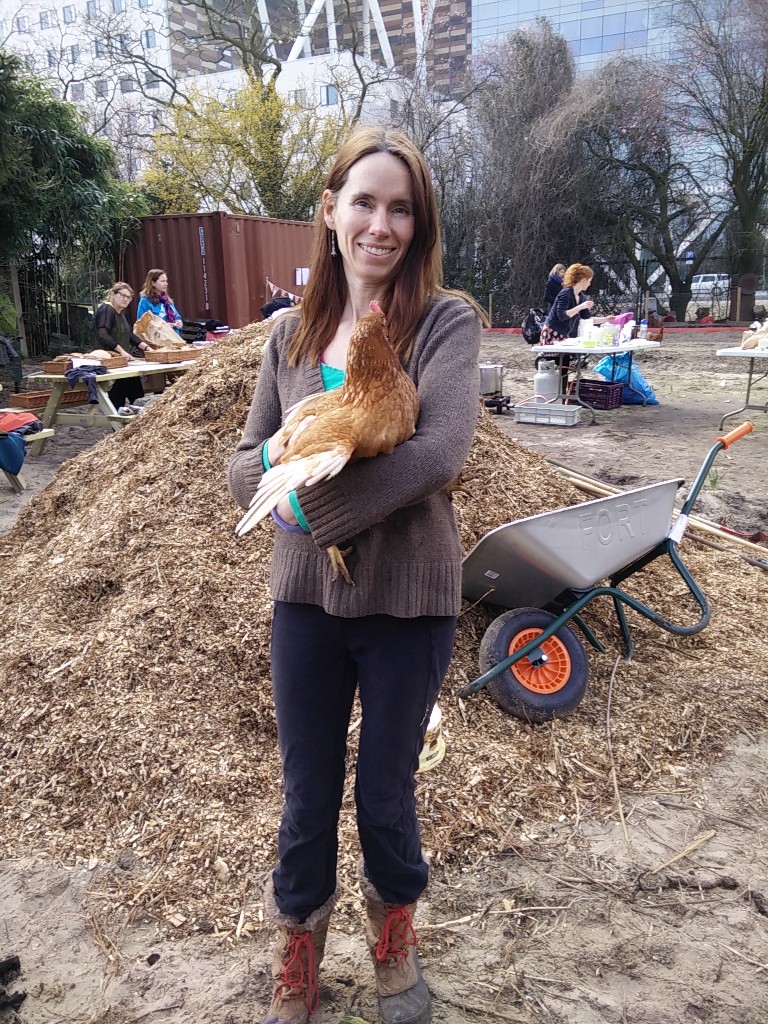 The faces at the frontline
The faces at the frontline
Working with principles of agroecology, women around the world are pioneering new practices in food and farming. Farming Matters proudly presents Esther, Ann, Allu, Lilian, Elizabeth, Mariama and Esther. “Agroecology is a way to produce food that is culturally acceptable” Esther Malya, farmer and livestock keeper in Tanzania “I am a farmer, a leader, a … Read more
In most cultures, the home gardens are women’s territory. Pablo Tittonell describes how female farmers safeguard the most important inheritance we may receive, one that is essential for agroecology, for future food and for nutritional security: cultural and biological diversity. I always have to think about the etymology of the terms ‘economy’ and ‘ecology’ when … Read more
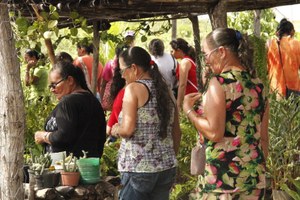 Building autonomy with agroecology
Building autonomy with agroecology
A strong network of female farmer-innovators in Paraíba, Brazil has been driving fundamental change in the lives of hundreds of women. Collective learning among farmers has brought rural women out of their isolation and into positions of leadership. The success of the women’s movement lies in its link between experimentation with agroecology and reflection on … Read more
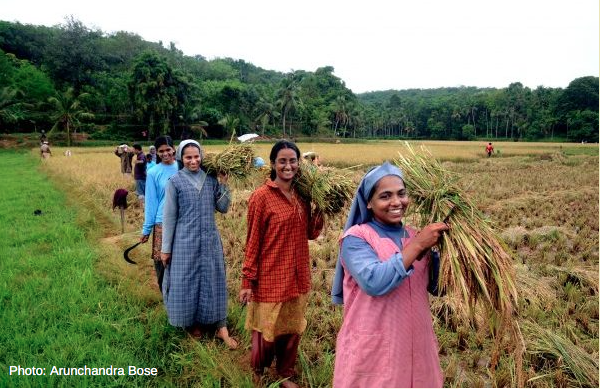 Opinion: Women farmers in Europe
Opinion: Women farmers in Europe
All over the world women play a unique and vital role in fixing our broken food system. There is a strong need in Europe to strengthen women farmers in their work, through education and training, argues Hanny van Geel. All over the world women play a unique and vital role in fixing our broken food … Read more
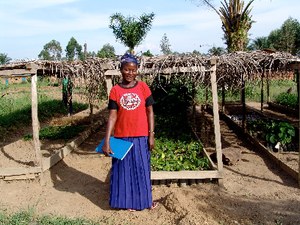 Locally rooted: Ideas and initiatives from the field
Locally rooted: Ideas and initiatives from the field
Faced with many challenges, women find creative find solutions to improve their lives through agroecology. The experiences here highlight initiatives in which women have successfully organised themselves to strengthen their food systems, their livelihoods and their autonomy. Increasing food sovereignty and farmers’ income Women from Suklagandaki municipality in Tanahun, Nepal, used to buy vegetables from … Read more
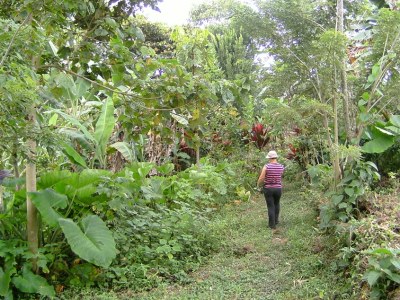 Constructing autonomy, territory and peace
Constructing autonomy, territory and peace
In the decades-long conflict in Colombia, agroecology has emerged as a strategy that helps women to cope with the war and to feed their families. AMOY, a women farmers organisation, not only promotes agroecological activities, but also supports women to counteract the cruelty of war by providing a space to express fear and sadness, to … Read more
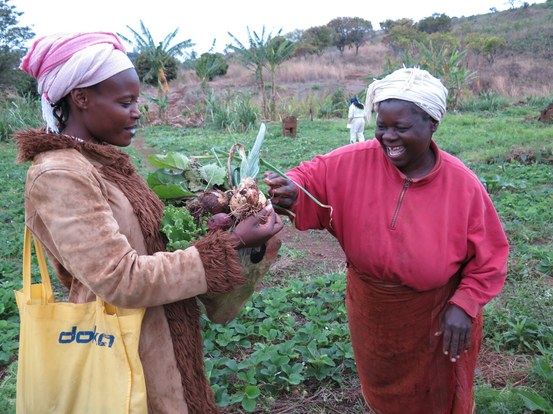 Peasant women power in Mozambique
Peasant women power in Mozambique
Women peasants in Mozambique are rescuing an agroecological model that goes against industrial, largescale food production. They are also rising up in protest against land grabbing, a trend that threatens to displace local farmers. In doing this, these women set Mozambique on a path toward sustainable development, while strengthening their positions, defending native seeds and … Read more
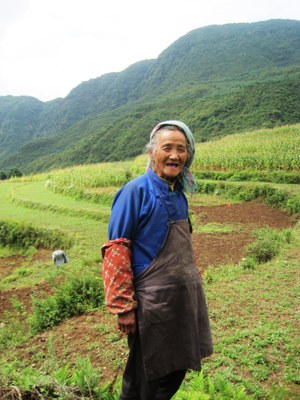 Women drive alternative economies in the Himalayas
Women drive alternative economies in the Himalayas
In the Himalayas, male outmigration and the effects of climate change create challenges for rural women. Many of them develop innovative farming practices based on agroecology, push alternative economies and create niche markets. Women in India, Nepal and China show how agroecology can be a strategy to adapt to changing circumstances, and to drive positive … Read more
Living on the edge: women, agrobiodiveristy, and livelihoods V. Ramprasad, 2015. Green Foundation and Third World Network, India, 109 pages. The predominance of commercially-marketed crop varieties and associated, enabling policies are displacing indigenous varieties cultivated over many generations. This loss of agricultural biodiversity puts both food security and the livelihoods of farmers at risk. These … Read more

